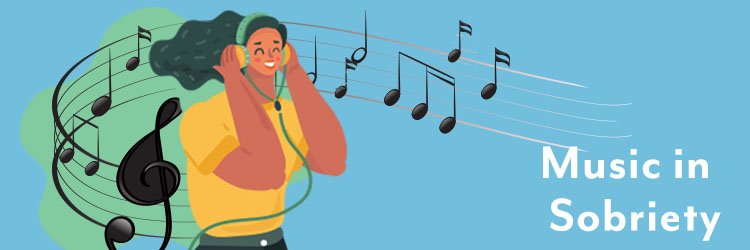[vc_row][vc_column][vc_column_text]I (vaguely) remember coming home from nights out when I was drinking/using and blasting music on my headphones. I thought the substances were adding something. But after a short time, I would pass out. By the next day I’d only remember fragments. Music activates the same reward pathways in the brain that get hijacked by drugs and alcohol. These pathways are how we derive pleasure from healthy activities like eating, connecting with others, appreciating art. The addicted brain derives less pleasure from these types of activities. It has tunnel vision for the substance of choice, even as using becomes less and less pleasurable. Studies have found that brainwaves respond to beats. With faster beats come sharper and more alert thinking. A slower tempo promotes calm. Actively listening to music has become part of my recovery. Sometimes when I’m struggling, dance parties can be a kind of therapy. This is true whether I’m with friends or alone with my headphones. Music can put me into a meditative state. As a discursive thinker (someone who generally has a dialogue going in their head) this is not an easy place to get to unassisted. Darin McFayden—a DJ and producer who is also trained in the Yogic, Tibetan Buddhist and Theravada Buddhist meditative traditions—sees a lot of parallels between listening to music and meditating. As he says: “When you’re fully lost in music you’re getting a taste of nirvana without any of the rigorous training.” Both music and meditation, he points out, help us quiet our mental chatter and take us into the present. 








